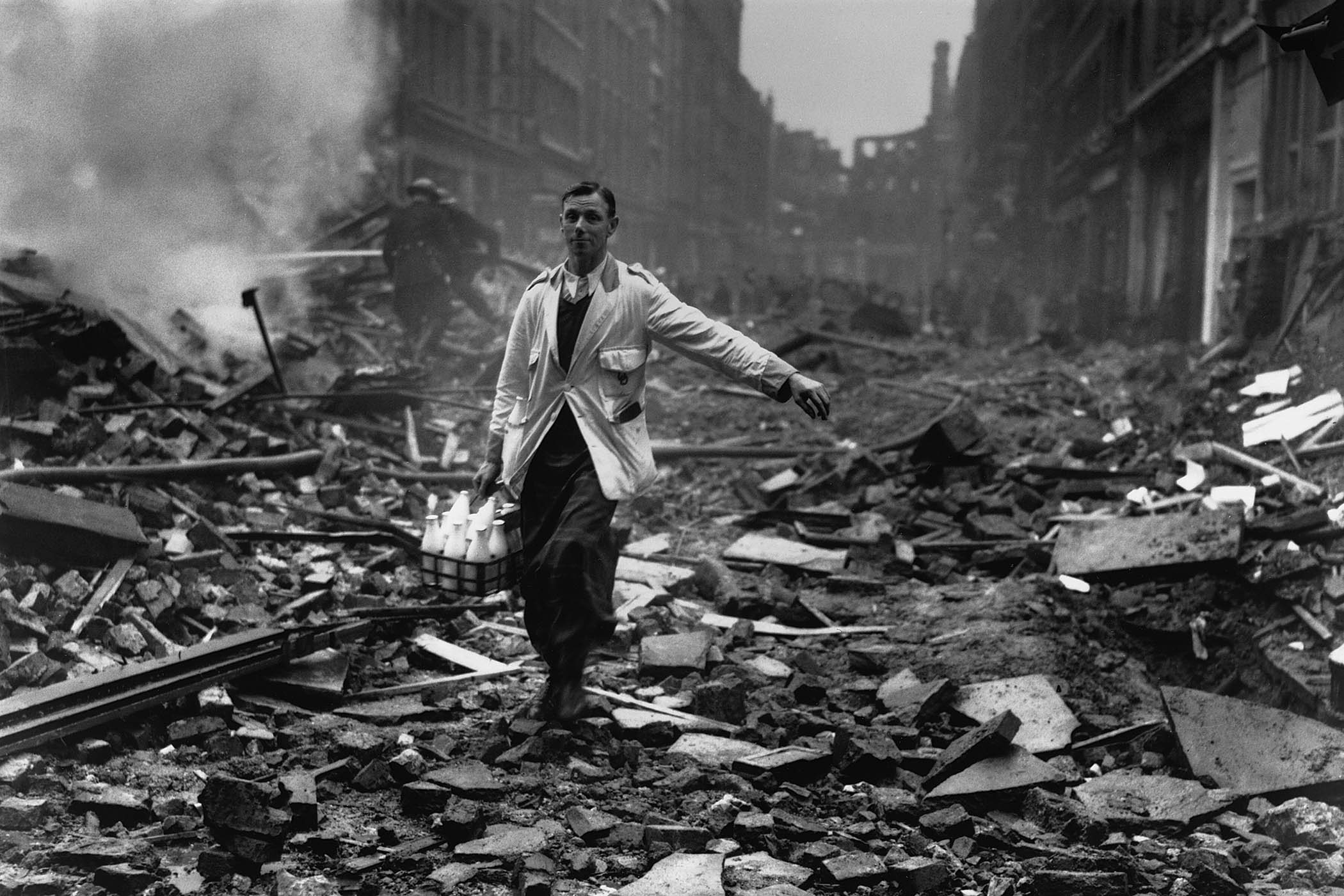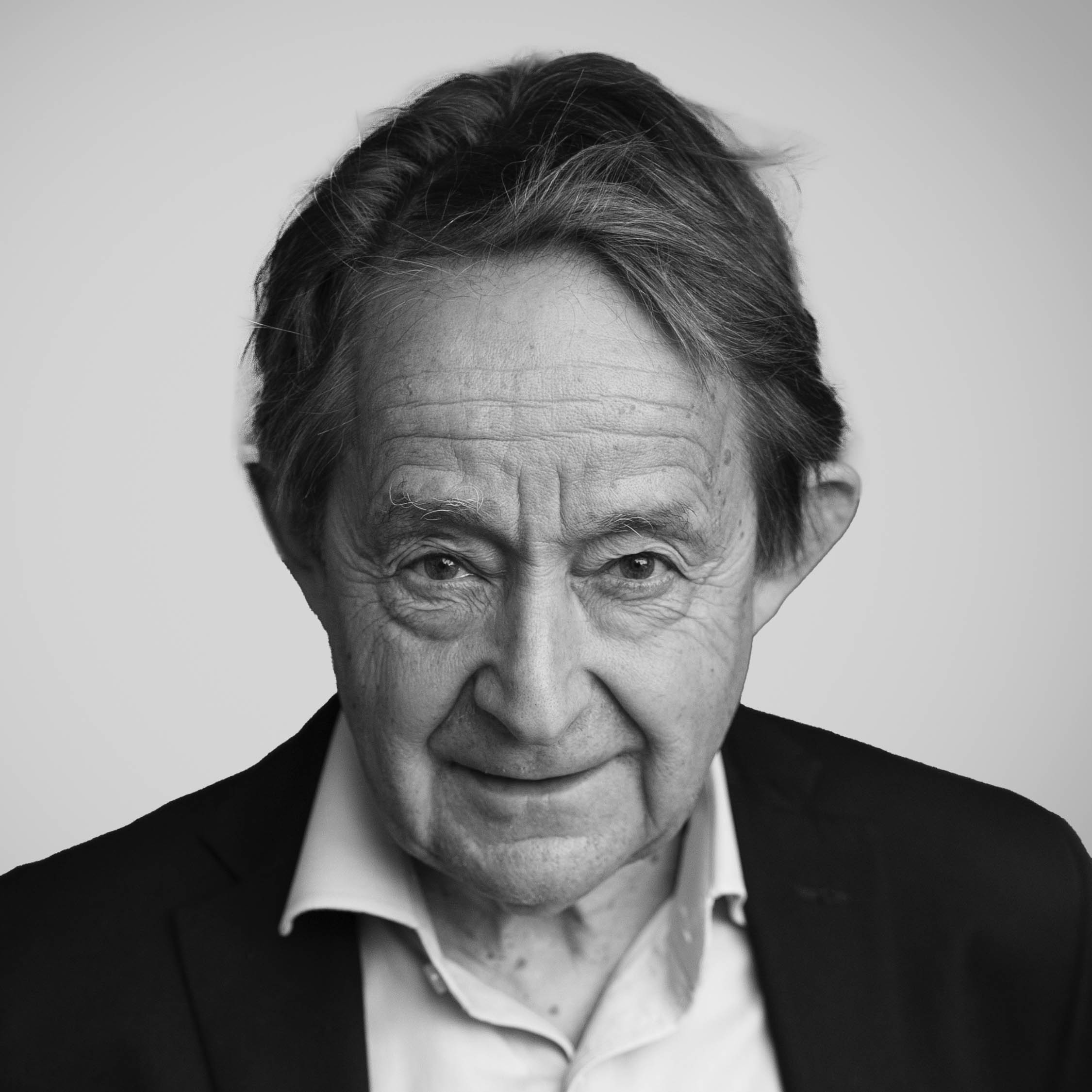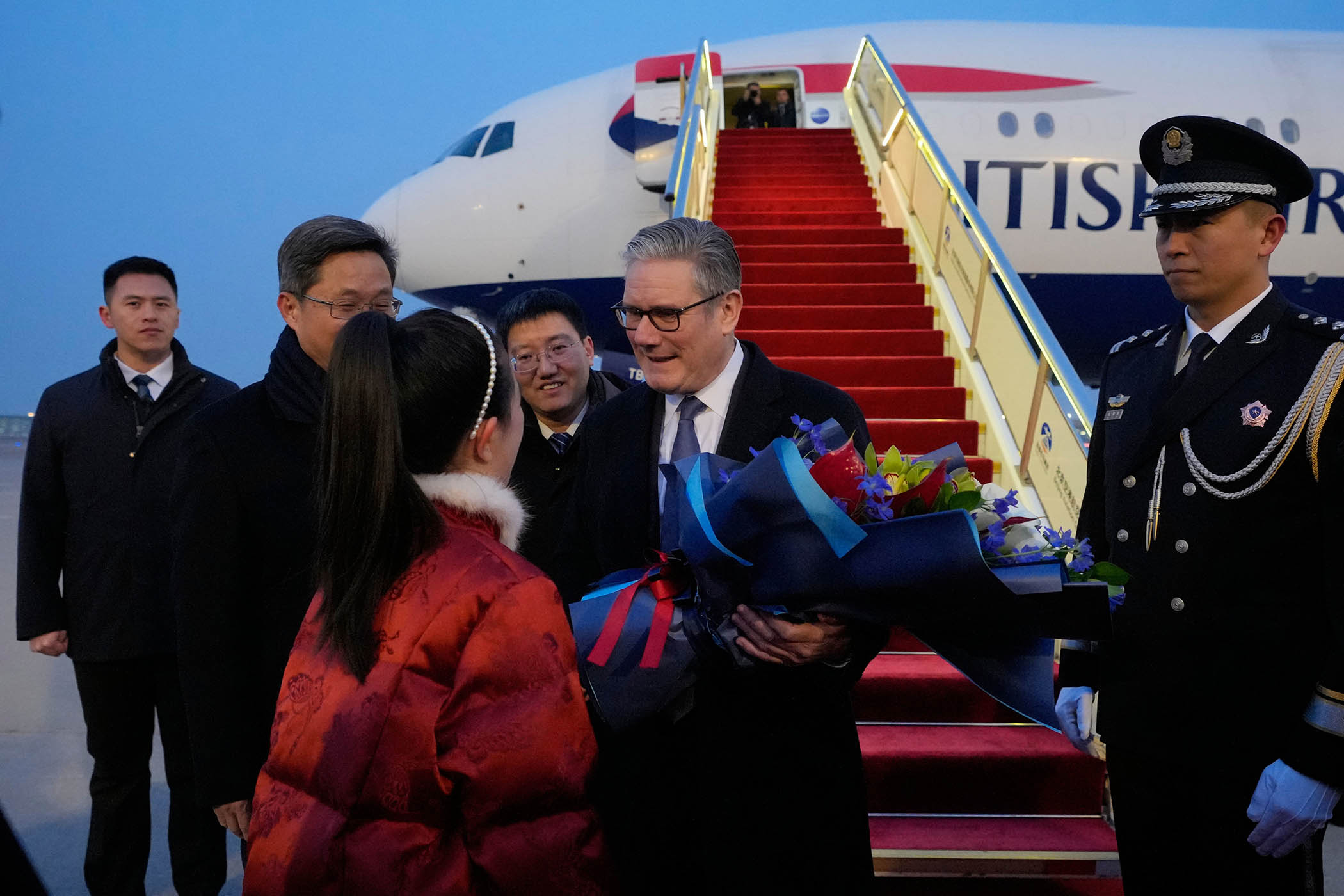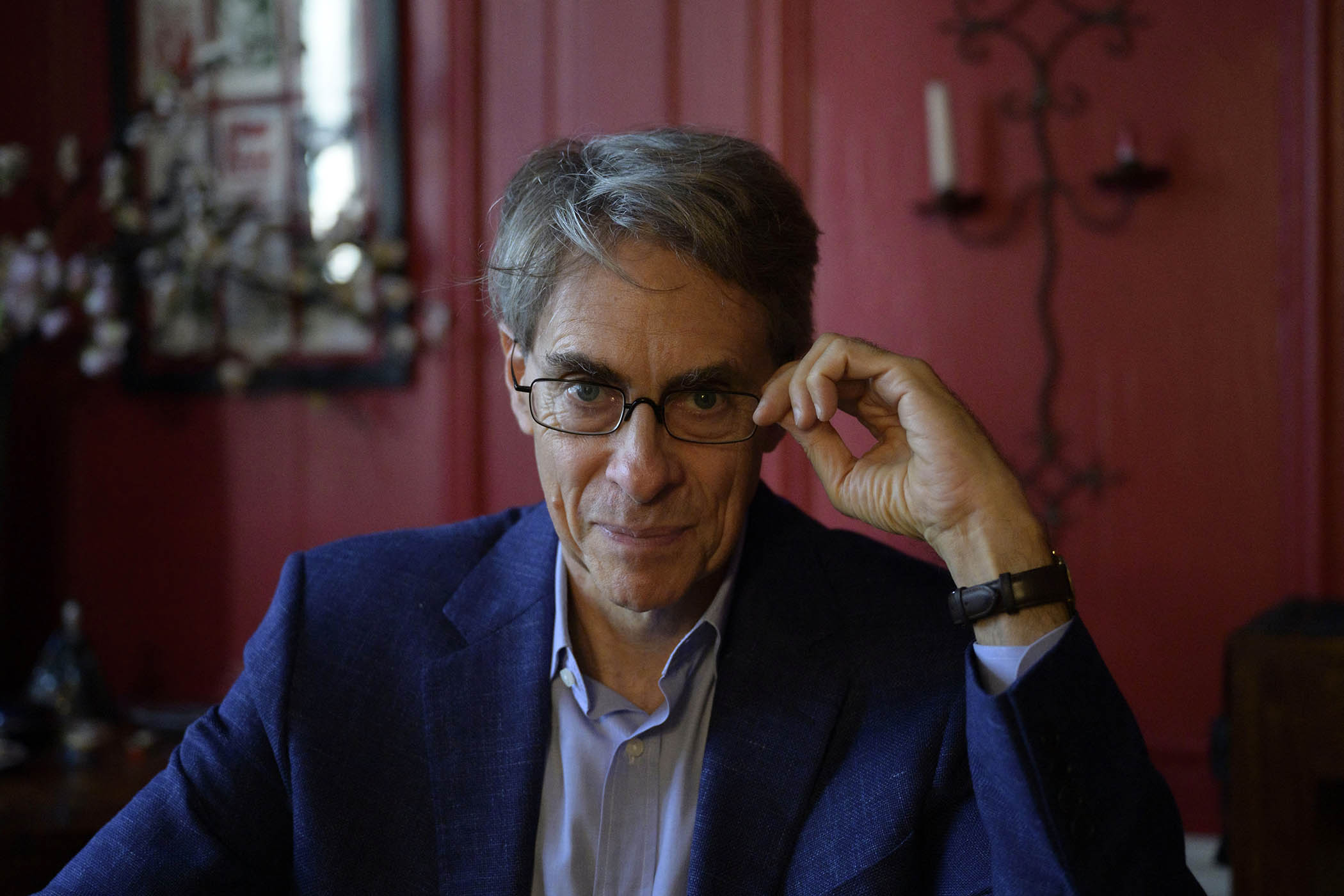Eighty years ago this weekend, on Sunday 11 November 1945, King George VI joined the newly minted Labour prime minister Clement Attlee in laying wreaths on the Cenotaph in London’s Whitehall, the first time in seven years that the remembrance ceremony, introduced after the first world war, had taken place in peacetime. Across the nation, countless millions assembled at 11am to stand for two minutes in silence.
What was being marked, beyond the loss of 380,000 members of Britain’s armed services and 67,000 civilians? Victory. Victory over dictatorship in a war that Britain had seemed destined for prolonged periods to lose. The war had touched every corner of the country, every man, woman and child. Unity, gratitude and hope were the overwhelming emotions of the day.
Victory was total. Unlike after 1918, there was no return to militarism in Germany or elsewhere. Peace enveloped Europe. Never again would genocide be tolerated. Unlike after 1918, when the prime minister, David Lloyd George, had promised “a fit country for heroes to live in”, Attlee was intent on delivering on “a new Jerusalem” for British people. Unlike after 1918, when division and disillusion quickly spread, there was a resolute will to deliver on rebuilding the social contract for peacetime.
Attlee’s Labour government, facing an incomparably more difficult challenge than Keir Starmer’s but with a clear plan and the right personnel in place, restored the domestic economy, guaranteed full employment and introduced the National Health Service and the welfare state. All were offered social insurance from, in the words of the plan’s author, William Beveridge, “the cradle to the grave”. Gone for ever were the “five evils” that diminished human potential, dignity and happiness: want (by the measures to alleviate poverty), disease (NHS), ignorance (by radical reforms to schools), squalor (homes for all) and idleness (by full employment).
On the 50th anniversary of the end of the war, in the summer of 1995, the outlook remained optimistic. Taking part in a BBC discussion to mark the event, the consensus among the historian panellists was that much of the promise of 1945 had indeed been fulfilled.
The cold war had ended in 1991, the division between East and West Germany had been ended by unification in 1990, and there had been no war between major European countries, aided by the setting up of Nato in 1949 and the EU from 1957. Fascist parties on the continent had been marginalised or extinguished. The wars in Northern Ireland and former Yugoslavia were reaching a conclusion. The United Nations, while criticised, was praised for its humanitarian, peacekeeping and human rights achievements.
Challenges from the anti-democratic left and right in Britain had been seen off, with memories of the evils of wartime totalitarianism still fresh and alive. Britain was, of course, far from a perfect country in 1995. Regional poverty and social inequality remained severe, and Beveridge’s five evils had not been fully slain: but, overall, there was much to celebrate.
This summer the bunting came out. It felt cheap and vulgar. We were remembering winning a war, not why it had been fought
This summer the bunting came out. It felt cheap and vulgar. We were remembering winning a war, not why it had been fought
All of this has changed utterly by this 80th Remembrance Sunday anniversary. The high hopes of the governments of Tony Blair and Gordon Brown of creating a “new Britain” for the new millennium have mostly faded away, a more tolerant country though Britain definitely is. Unemployment, ill health, homelessness and despair are reaching levels that would have shocked the architects of the new Jerusalem. Nigel Farage’s Reform party has a credible chance of winning the general election due in 2029.
Related articles:
Abroad, we see Europe divided and at war. In Germany, Alternative für Deutschland achieved its best results, with 21% of the popular vote. Far-right parties are performing strongly in France, Italy, Austria and Belgium. Russia is intent on beating Ukraine, and is shamelessly destabilising Eastern European countries.
I saw this firsthand when I travelled this spring through the Czech Republic and Poland to Auschwitz. At a lecture at the British embassy in Prague, there was palpable disgust when I displayed a photograph of American vice-president JD Vance, who – days before, in Munich –had made light of the threat from Russia. Across the country, I heard raw fury at President Trump for appeasing Vladimir Putin, echoing Neville Chamberlain’s yielding to Hitler. “Chamberlain’s betrayal is still a livid wound in the Czech psyche. It is still seen as a betrayal,” Michael Žantovský, right-hand man to the former Czech president Václav Havel, told me.
Newsletters
Choose the newsletters you want to receive
View more
For information about how The Observer protects your data, read our Privacy Policy
Poland was in the midst of presidential elections as I walked the lanes and towns covered in posters of the candidates. The image of Grzegorz Braun, who disrupted a Holocaust lecture in 2023 and smashed up equipment, was prominent: he came fourth in the recent election, a few weeks later.
Poles suffered proportionately worse than any other country in the second world war. “Why did Britain declare war in 1939 to protect Poland, only to abandon us in 1945 to the Soviets?” a middle-aged Pole asked me angrily. “History is very present in Eastern European minds,” a Polish journalist told me. “It isn't history to them at all.”
We have indeed forgotten the lessons of the second world war. This summer, on the 80th anniversary, the bunting came out, books were published and war films and documentaries were shown. It felt cheap and vulgar. We were remembering winning a war, not why the war had been fought. Explicitly, Britain entered war in defence of democracy, and it was fought by civilians at home and servicemen abroad with sacrifice and devotion to the just cause.
The leaders who presided over it did so with integrity and high competence. They were serious about building a better country in its wake.
We have become careless of what matters. “Never again?” From east to west, bullies dominate. International institutions have been allowed to wither. In the US, powerful voices echo Nazi justifications for overriding democracy. Nations flourish when there is competence and integrity from the top, public service and community spirit. Yet public servants have been trashed. I refuse to believe that the values of 1945 have been lost, but it mustn’t take another war to remind us why they matter.
Anthony Seldon is the author of The Path of Light: Walking to Auschwitz (Atlantic Books)
Photograph by Hulton-Deutsch Collection/CORBIS, Getty



